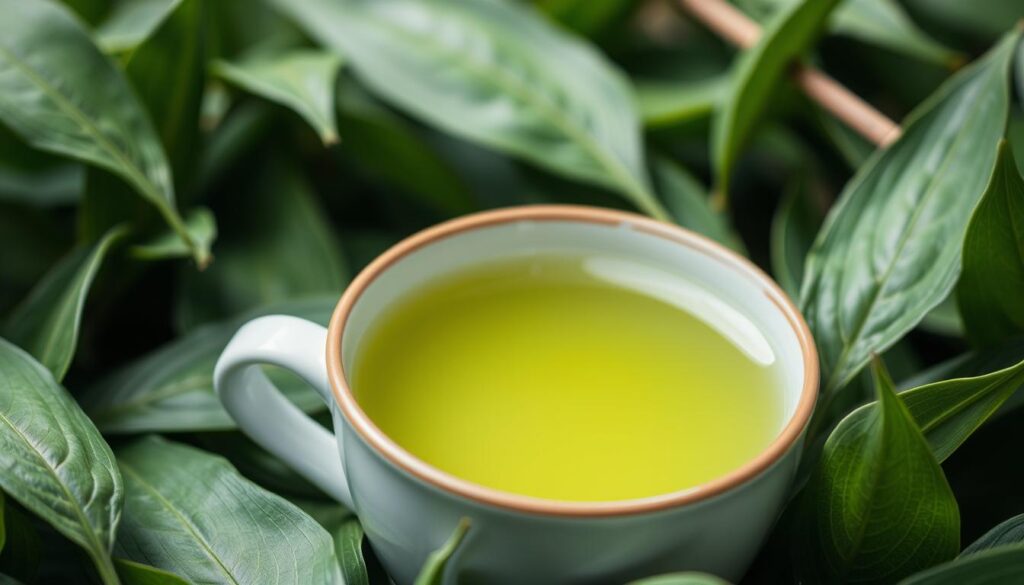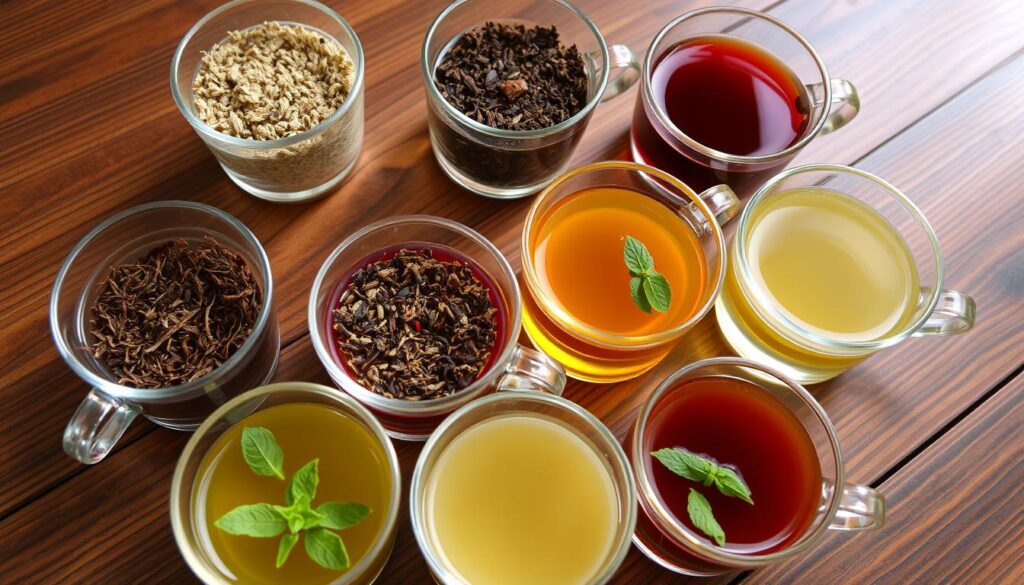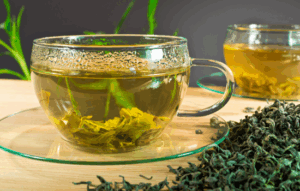Advertisements
Tea is one of the oldest and most consumed drinks in the world, second only to water. With a history dating back more than 5,000 years, this ancient infusion offers numerous benefits benefits for your health.
From cardiovascular protection to improving brain function, different types of tea can positively contribute to your overall well-being thanks to their antioxidant properties and bioactive compounds.
Advertisements
Millions of people around the world incorporate tea into their daily routine as part of a healthy lifestyle. By exploring the scientific evidence that supports the benefits of tea, we can benefits of this drink, you will be able to take full advantage of its benefits for your health.
Tea: An Ancient Drink with Healthy Properties
Tea has been an integral part of diverse cultures around the world for centuries, offering not only a unique sensory experience but also multiple health benefits. Regular consumption can be an excellent way to maintain a healthy lifestyle.
History and Origin of Tea
Tea has its roots in ancient China, where it originated over 4,000 years ago. Initially valued for its medicinal properties, tea soon became a popular beverage among the upper classes. Over time, its consumption spread throughout the world, adapting to different cultures and traditions.

Advertisements
Nutritional Composition of Tea
Tea is known for its low calorie content and richness in antioxidants. By consuming it without sugar or milk, you can enjoy a hydrating and healthy beverage. Additionally, tea can replace less healthy beverages like sugary sodas or energy drinks, helping you reduce your intake of carbohydrates. sugar and calories in your day to day.
Tea as Part of a Healthy Life
Incorporating tea into your daily routine can be beneficial for your health. According to experts, consuming several cups of tea a day can provide multiple benefits, although the optimal amount may vary depending on the type of tea and your individual needs. It's advisable to consult with a healthcare professional, especially if you have specific medical conditions or are taking medication, as some tea compounds may interact with certain medications. For more information on how tea can revitalize your life, you can visit This article.
- Enjoy your tea without sugar or milk to keep its calorie content low.
- Use tea as an alternative to less healthy drinks.
- Consult a healthcare professional to determine the appropriate amount of tea for your needs.
Main Health Benefits of Tea
Drinking tea can be one of the healthiest choices you can make for your well-being. With a rich history and unique nutritional composition, tea offers a variety of benefits that can improve your health in multiple ways.
Powerful Source of Antioxidants
Tea is known for being a rich source of antioxidants, which help protect the body against free radicals. These compounds can reduce cell damage and contribute to the prevention of chronic diseases. The antioxidants present in tea, especially green tea, may help maintain cellular health and reduce the risk of certain diseases.

Reducing the Risk of Cardiovascular Disease
Regular tea consumption has been associated with a reduced risk of cardiovascular disease. The flavonoids present in tea may help improve heart health by lowering blood pressure and improving vascular function. This may lead to a reduced risk of heart attacks and strokes.
| Type of Tea | Cardiovascular Benefit |
|---|---|
| Green tea | Reduces blood pressure |
| Black Tea | Improves vascular function |
| Herbal tea | Contributes to overall heart health |
Improved Brain Function and Concentration
Tea contains caffeine, a stimulant that can improve brain function and increase concentration. Additionally, the L-theanine and other amino acids present in tea can promote relaxation and reduce stress. This can result in a better ability to focus and maintain mental clarity.
Some studies suggest that the combination of caffeine and other compounds in tea may have a positive impact on cognitive function.
Weight Control and Metabolism
Tea, especially green tea, contains compounds that can help boost metabolism and improve fat oxidation, which may contribute to weight control. caffeine It acts as a mild metabolic stimulant, while catechins can help break down fats more efficiently.
Drink tea without sugar nor milk can be an excellent way to reduce total caloric intake, since it does not provide calories additional. This makes it an ideal drink for those looking to control their weight.
In short, tea is a versatile beverage that offers multiple health benefits, from reducing the risk of cardiovascular disease to improving brain function and weight management. By incorporating it into your daily diet, you can take advantage of its nutritional properties and improve your overall well-being.
Types of Tea and Their Specific Benefits
There are several types of tea, each with unique health benefits. Below, we'll explore some of the most popular varieties and their nutritional properties.
Green Tea: The Richest in Antioxidants
Green tea is known for its high antioxidant content, which helps protect the body against oxidative damage and may reduce the risk of certain diseases. Its benefits include improved brain function and potential aid in weight loss.

Black Tea: Favorite in the West
Black tea is one of the most widely consumed varieties in the West. It has a strong flavor and is rich in antioxidants, although in smaller amounts than green tea. Its benefits include improved cardiovascular health and a reduced risk of certain diseases.

Herbal Tea: Caffeine-Free Options
Herbal tea is a great option for those looking to avoid caffeine. It's made from a variety of plants and flowers, offering different flavors and benefits. Some popular options include chamomile for relaxation and peppermint for digestion.

Rooibos Tea: Benefits for the Heart
Rooibos tea, native to South Africa, is a herbal infusion derived from the Aspalathus linearis plant. It is naturally sweet and caffeine-free. Its benefits include reducing cardiovascular risk factors, such as blood pressure and LDL cholesterol.
- Rooibos is rich in unique antioxidants such as aspalathin and nothofagin.
- It can help reduce LDL cholesterol levels and blood pressure.
- It has a low tannin content, which means it does not develop bitterness over time.

Tea as an Ally Against Chronic Diseases
The antioxidant properties of tea make it a valuable ally in the fight against chronic diseases that affect millions of people worldwide. Drinking tea regularly can be an effective strategy for improving overall health and preventing certain conditions.
Diabetes Prevention
Tea contains polyphenols and catechins that help improve insulin sensitivity and regulate blood glucose levels. This may reduce the risk of developing type 2 diabetes. Consuming several tea cups a day can be beneficial for people with a predisposition to this disease.
Digestive and Intestinal Health
Some varieties of tea, such as green tea and herbal tea, may contribute to better digestive health. The antioxidants present in tea may help reduce inflammation in the gastrointestinal tract and promote a healthy balance of gut flora.
Strengthening the Immune System
The antioxidant compounds in tea help strengthen the immune system by combating oxidative stress and reducing inflammation. Regular consumption of tea throughout the lifespan time can contribute to a more efficient immune response, helping the body better defend itself against infections and diseases.
- Green tea and echinacea tea are particularly beneficial for the immune system.
- Drinking several cups of tea a day can reduce episodes of common infectious diseases.
- Tea can also help indirectly by improving sleep quality and reducing stress.
In summary, incorporating tea into your daily diet can be an excellent strategy to improve overall health and prevent chronic diseases in people of all ages.
Tea for Mental and Emotional Well-being
Regular tea consumption can contribute to better mental and emotional health. Drinking a cup of tea a day can be a simple but effective ritual to improve your well-being.
Stress and Anxiety Reduction
Tea, especially herbal teas like chamomile and valerian, contains compounds that promote relaxation and reduce stress. By incorporating a cup of tea into your daily routine, you can create a moment of calm in the midst of a busy day.
According to some research, drinking tea helps people recover from stress more quickly. You can find more information about the benefits of tea at This article.
Improved Sleep and Relaxation
Chamomile tea is particularly beneficial for improving sleep. Incorporating a relaxing cup of tea into your nighttime routine can signal your body that it's time to rest.
Some caffeine-free tea options, such as herbal tea, promote natural, restorative sleep. Drinking a cup of tea about an hour before bedtime can help you relax and prepare for a good night's sleep.
| Benefits of Tea | Description |
|---|---|
| Stress Reduction | Herbal tea helps you relax and reduce stress |
| Improved Sleep | Chamomile tea promotes natural and restorative rest |
Conclusion: Incorporating Tea into Your Daily Routine
Incorporating tea into your daily routine can be a simple way to improve your overall health. Drinking several tea cups throughout the day can help you stay hydrated and enjoy the various benefits that different types of water offer. teas.
You can start your day with a black or green tea for a gentle energy boost, enjoy a green or white tea mid-afternoon, and finish with a relaxing herbal infusion before bed. Experiment with different varieties of tea, such as leaves loose or herbal blends that suit your specific needs.
Remember that although tea offers numerous benefits benefits for the healthIt is important to consume it in moderation and consult a healthcare professional if you have specific medical conditions. For more information on the benefits of tea, you can visit this link.
By incorporating tea into your daily routine, you can enjoy a pleasant and healthy way to improve your overall well-being, reducing the risk of certain diseases. diseases and promoting a healthier lifestyle.





One Response